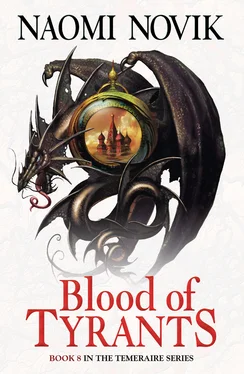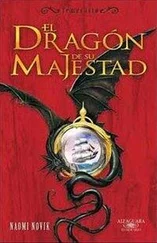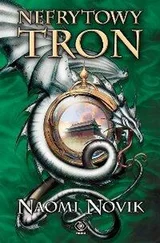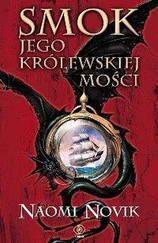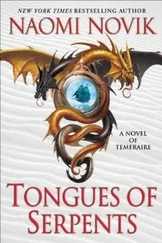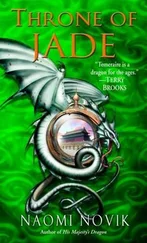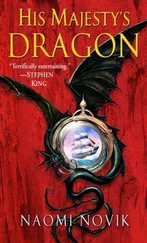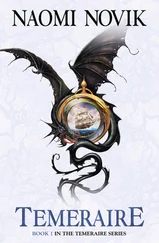The creaking stopped abruptly; a voice spoke from the chair: a clear tenor with the directness of authority. Prudence would have driven him to his feet, but he had no reserves of strength. In a moment, someone came to inspect him—a servant of some kind? He had some vague impression of a youth bending down over him, but not so low that the face came clear.
The servant paused, and then withdrew quickly to his master and spoke urgently in a clear young voice. There was another pause, and then the master spoke again in yet another tongue, one which he could not put a name to and nevertheless somehow understood: a rising and falling speech, musical. “I will not evade the will of Heaven. Tell me.”
“He is Dutch,” the servant answered in that same language, reluctance clear in every word.
He might have raised his head to speak—he was not Dutch, and knew that, if very little else; but he was cold, and his limbs heavier with every moment.
“Master, let us go on—”
“Enough,” the tenor voice said, quiet but final.
He heard orders given in the unfamiliar language while darkness stole over his vision; there were hands on him, their warmth welcome. He was lifted from the ground and slung into a sheet or a net for carrying; he could not even open his eyes to see. The company moved on; suspended in mid-air, swinging steadily back and forth as they went on, he felt almost as though he were in a hammock, aboard ship, swaying with the water. The movement lulled him; his pain dulled; he knew nothing more.
“William Laurence,” he said, and woke with his own name, at least, restored to him: out of a tangled dream full of burning sails and a strange weight of despair, a sinking ship. It faded as he struggled up to sit. He had been lying on a thin pad laid upon a floor of woven straw matting, in a room like none he had ever seen before: one solid wooden wall, the rest of translucent white paper set in frames of wood, and no sign of doors or windows. He had been bathed and dressed in a robe of light cotton; his own clothes were gone, and his sword. He missed the latter more.
He felt adrift, robbed of place and time. The chamber might have been a solitary hut or a room in the center of a great house; it might be set upon a mountaintop or the seashore; he might have slept an hour, a day, a week. A shadow abruptly loomed on the other side of the wall furthest from his bed, and the wall slid open along a track to furnish Laurence a glimpse of a corridor and another room across standing half-open, indistinguishable from his own, save for a window which looked out on a slim cherry-tree with bare dark branches.
A young man, not very tall but gangly with recent growth, perhaps sixteen, came through the opening and folded himself into the low-roofed chamber while Laurence stared at him blankly: he was Oriental. A long face with a sharp chin, clean-shaven and softened with the last remnants of puppy-fat; his dark hair was drawn back into a tail, and he wore an intricately arranged set of robes, creases as sharp as knife-edges.
He sat down on his heels and contemplated Laurence in turn, with an expression bleak enough to be aimed at a plague-carrier. After a moment he spoke, and Laurence thought he recognized the voice—the youth who had wished him left by the road.
“I have not the least notion what you are saying,” Laurence said, his voice sounding hoarse in his own ears. He cleared his throat: even that much struck his head with fresh pain. “Can you speak English? Or French? Where am I?” He tried those tongues both, and then hesitating repeated the last over in the other language which the men had spoken on the road.
“You are in Chikuzen Province,” the young man said, answering him in kind, “and far from Nagasaki, as you must well know.”
There was a sharp bitterness to his voice, but Laurence seized on the one familiar name. “Nagasaki?” he said, half in relief, but the momentary gratification faded: he was no less bewildered to know himself in Japan, the other side of the world from where he ought have been.
The young man—too old for a page, and he wore a sword; an equerry of some sort, or a squire, Laurence could only guess—made no answer, only with a curt gesture motioned him off the mat.
Laurence shifted himself onto the floor, with some awkwardness and pain: the ceiling was too low to have permitted him to stand unless he had hunched over like a toad, and he ached in every part. Two servants came in at the young man’s call; they tidied the mat away into a cabinet and offered Laurence fresh garments, baffling in their layers. He felt a clumsy child under their valeting, thrust one way and then another as he put his limbs continuously in the wrong places; then they brought him a tray of food: rice and dried fish and pungent broth, with an array of startling pickles. It was by no means the breakfast he would have chosen, his stomach unsettled, but they had no sooner put it before him than animal hunger became his master. He paused only after having devoured nearly half the meal, and stared at the eating-sticks, which he had picked up and used without thinking of it.
He forced himself to go on more slowly than he wished, still queasy and conscious of being under observation, the young man regarding him coldly and steadily the whole of his meal. “Thank you,” Laurence said at last, when he had finished, and the dishes were silently and deftly removed. “I would be grateful if you should give your master my thanks for his hospitality, and tell him I would be glad of an opportunity to repay it.”
The youth only compressed his lips together. “This way,” he said shortly. Laurence supposed he could have not looked anything but a vagabond, when they had found him.
The corridors of the house were not so stooped as the chambers. Laurence followed him to a back-chamber with a low writing-desk of some sort set upon the floor: another man sat behind it, working smoothly with brush and ink. His forehead and pate were clean-shaven, with a queue of his black hair clubbed tight and bound down doubled, over the bare skin; his garments were more ornate than the young man’s, although of the same style. The young man bowed to him from the waist, and spoke briefly in the Japanese tongue, gesturing towards him.
“Junichiro tells me you are recovered, Dutchman,” the man said, laying aside his brush. He looked across the desk at Laurence, wearing an expression of formal reserve, but with none of the dismay the young man—Junichiro?—had aimed at him.
“Sir,” Laurence said, “I must correct you: I am an Englishman, Captain William Laurence of—” He halted. Hanging from the wall behind the man’s head was a large and polished bronze mirror. The face which looked back at him from it was not merely haggard from his recent ordeal but unfamiliar: his hair grown long; a thin white scar running down his cheek, long-healed, which he did not remember; and lines and wear accumulated. He might have aged years since he had seen himself last.
“Perhaps you would be so kind as to explain to me the circumstances of your arrival in this part of the country,” the man said, prompting gently.
Laurence managed to say, reeling, “I am Captain William Laurence, of His Majesty’s Ship Reliant, of the Royal Navy. And I have not the least notion how I have come to be here, except if my ship has suffered some accident, which God forbid.”
Laurence did not much know what else he said afterwards. He supposed they saw his confusion and distress, for the questions stopped, and a servant was called to bring in a tray: a flask and small porcelain cups. His host filled one and gave it to him; Laurence took it and drank blindly, glad for the intensity: strong as brandy though light on the tongue. His cup was refilled promptly, and he drank again; the cup was small enough to be a single swallow. But he put it down afterwards. “I beg your pardon,” he said, feeling acutely that he had lost control of himself, and all the more awkward in the face of their carefully polite failure to notice it. “I beg your pardon,” he said, more strongly. “Sir, to answer your question, I cannot tell you how I came to be here: I must have been swept overboard, is the only possible answer. As for purpose, I have none; I have neither business nor friends in this part of the world.”
Читать дальше
